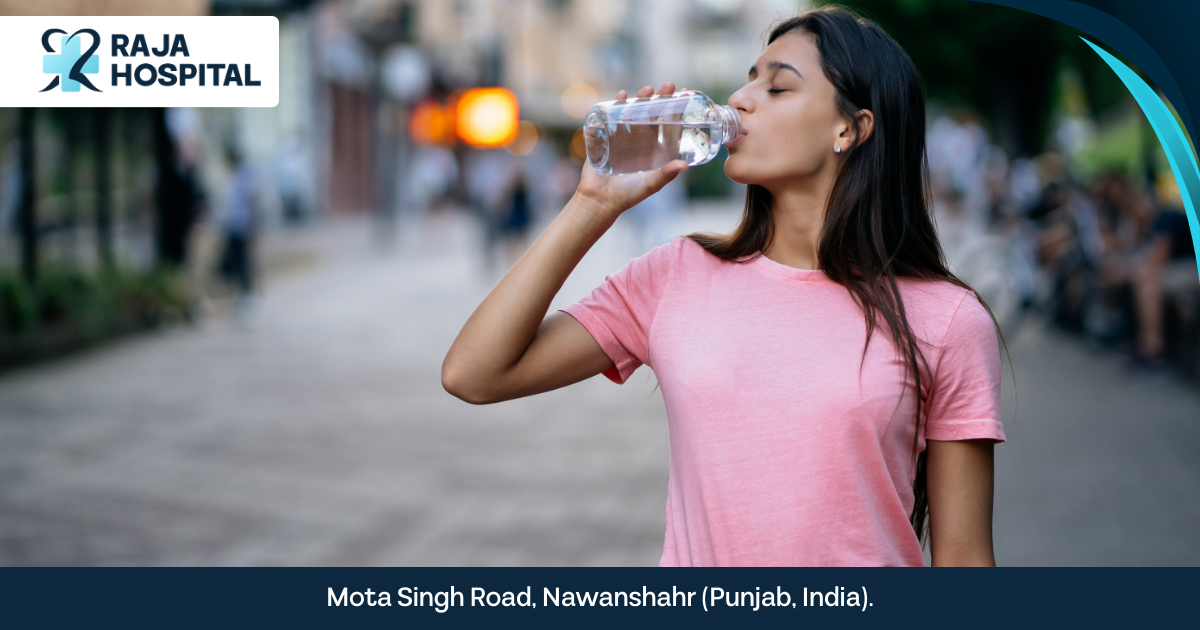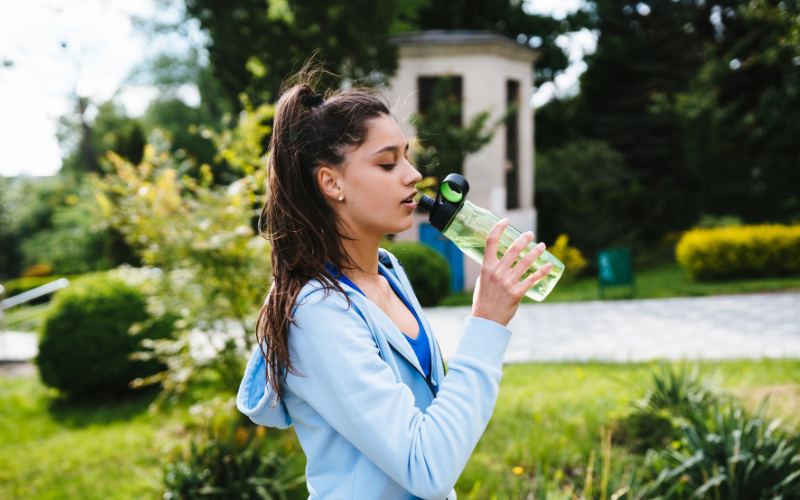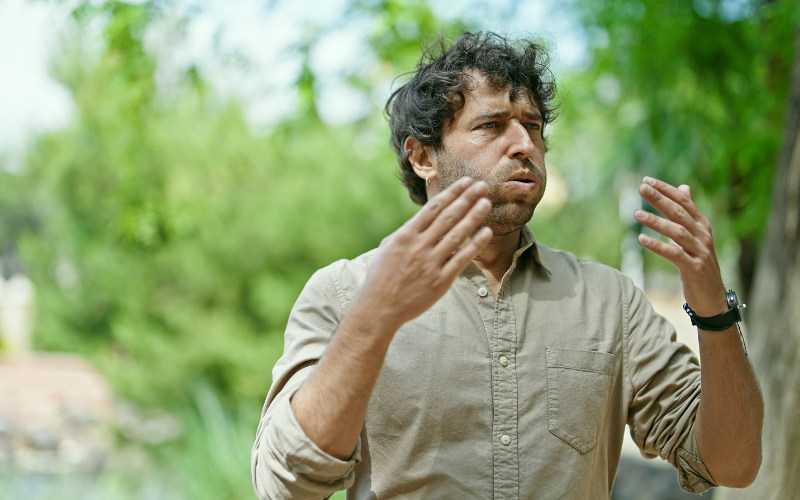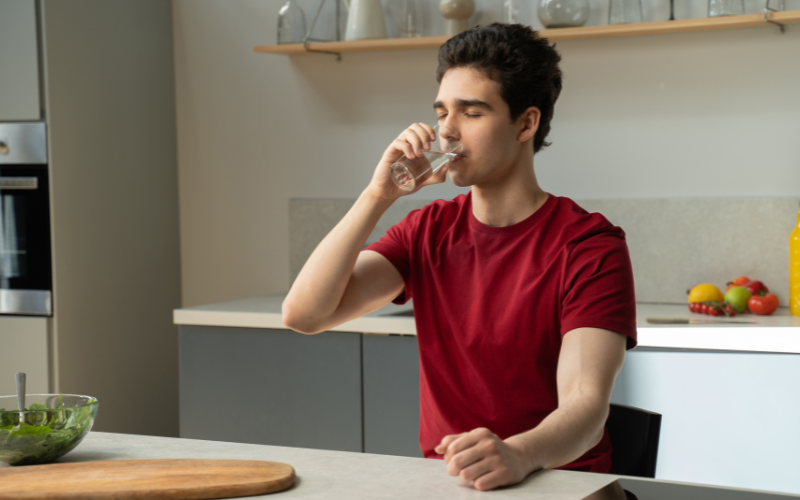Ideal Water Intake: 7 Truths You Need to Know!

REVIEWED BY Dt. Gurjeet Kumari (Dietitian) on 13th june 2025.
You’ve probably heard it a hundred times: “Drink 8 glasses of water every day.” But what if I told you that this advice might be doing more harm than good?
Here’s the thing: water is essential, yes. But blindly following a one-size-fits-all rule can be misleading. Some people drink water only when they’re thirsty, assuming their body will send a signal in time. Others overdo it, gulping down bottle after bottle, thinking they’re unlocking the secret to perfect health.
I’ve seen patients come into our hospital confused about symptoms like fatigue, dizziness, and even headaches, only to realize they weren’t drinking the right amount of water. Not too little. Not too much. Just wrong for them.
In this article, we’re going to bust common myths about water intake and give you a simple, science-backed guide to stay truly hydrated. Whether you’re a busy professional, a student, or a senior citizen, this blog will help you understand what your body needs.
Key Takeaways

Water is vital for your body, but there’s no “one-size-fits-all” rule like the old “8 glasses a day” myth. Your ideal intake depends on your weight, activity, and health. Signs of dehydration often go unnoticed, like fatigue, dry mouth, or dark urine.
Staying hydrated doesn’t mean chugging water all day. Simple daily habits drinking water in the morning, before meals, and including water-rich foods, can make a big difference.
Most importantly, listen to your body. Hydration needs are personal, and when in doubt, don’t hesitate to consult healthcare professionals. At Raja Hospital, we’re always here to help you stay well, hydrated, and informed.
Why Drinking Water Is So Important?

Water isn’t just something we drink to quench thirst, it’s the foundation of almost everything your body does.
Did you know that 60% of the human body is made up of water? That’s right. Your brain, heart, lungs, muscles, and even your bones all contain water. It’s not just important, it’s essential for survival.
Here’s what water helps your body do every day:
- Regulate body temperature – You sweat to cool down, and that’s mostly water leaving your body
- Carry nutrients and oxygen to cells – Without enough water, cells struggle to function properly
- Flush out waste – Your kidneys need water to remove toxins through urine
- Aid digestion – Water helps break down food so your body can absorb nutrients
- Keep joints and tissues lubricated – Helps prevent discomfort, stiffness, and inflammation
- Maintain energy levels and brain function – Even mild dehydration can cause fatigue, headaches, or difficulty focusing
In short, every system in your body depends on water. When you’re not drinking enough, it’s like trying to run a machine without oil; it slows down, overheats, and eventually breaks down. That’s why staying hydrated isn’t just a health tip. It’s a daily necessity.
Signs You’re Not Drinking Enough

Not sure if you’re getting enough water? Your body gives you clear signals. You just need to recognize them.
Here are some common signs of dehydration:
- Dry lips or mouth.
- Headaches or light-headedness.
- Feeling tired for no clear reason.
- Constipation or hard stools.
- Dark yellow urine (your urine color is a great clue).
And here’s something many don’t realize: If you feel thirsty, you’re already mildly dehydrated. That’s your body’s way of sounding the alarm, but it comes late.
What Happens If You Ignore Dehydration?
If you continue to drink less water than your body needs, symptoms can become more serious. You might feel dizzy or confused, or notice your skin becoming dry and dull. Over time, dehydration can even impact your heart and kidney health. Listening to your body early can help you avoid bigger problems later.
Water Intake: Myths vs. Facts
There’s a lot of confusing advice out there when it comes to drinking water. Let’s clear up a few common myths and set the record straight.
Myth 1: “If I’m not thirsty, I don’t need water.”
Fact: Thirst is a late signal. By the time you feel thirsty, you’re already mildly dehydrated. It’s better to sip water regularly, even if you don’t feel thirsty.
Myth 2: “Eating watery fruits is enough to stay hydrated.”
Fact: While fruits like watermelon and cucumbers help, they don’t fully replace drinking water. They’re great add-ons, but your body still needs plain water to function properly.
Myth 3: “More water means more benefits.”
Fact: Drinking too much water can be harmful. It may lead to water intoxication or imbalance in electrolytes. Stick to what your body needs, not what trends say.
Myth 4: “All drinks hydrate the same way.”
Fact: Drinks like coffee, tea, and sodas may contain water, but they can also dehydrate due to caffeine or sugar content. Water is still the best and cleanest source of hydration.
Myth 5: “I can only drink when I’m active or sweating.”
Fact: Even if you’re sitting indoors all day, your body still loses water through breathing, digestion, and urine. Hydration is a daily need activity; just increase it.
Myth 6: “Warm water is always better than cold water.”
Fact: Both warm and cold water hydrate you equally. Warm water may aid digestion, while cold water can feel refreshing. The best water is the one you’ll drink regularly.
Simple Tips to Drink More Water
Struggling to drink enough water every day? You’re not alone. Many people either forget or don’t realize how little water they’re drinking. The good news is you don’t need a fancy routine or expensive bottles. A few small changes can help you stay hydrated without even thinking about it.
1. Start your day with water, not tea or coffee

That first glass of water in the morning sets the tone for the rest of the day.
- Drink one glass of room-temperature water right after waking up
- Keep it ready beside your bed if needed
- Helps activate digestion and flush out overnight waste
2. Keep water within reach, always
Out of sight, out of mind. Make it easy to sip.
- Carry a refillable bottle wherever you go
- Place a glass of water on your desk or kitchen counter
- Refill as soon as it’s empty
3. Drink before, not just after meals

Make water a part of your eating routine.
- Sip water 20–30 minutes before meals.
- Helps with digestion and prevents overeating.
- Avoid drinking too much right after eating.
4. Make water more fun without sugar
Bored with plain water? Add some natural flavor.
- Add slices of lemon, cucumber, or mint.
- Try infused water bottles for convenience.
- Avoid store-bought flavored waters with sugar.
5. Let your food help hydrate you

Not all water has to come from a bottle.
- Eat fruits like watermelon, oranges, and strawberries.
- Include cucumbers, tomatoes, and lettuce in meals.
- Soups and smoothies also count toward your intake.
6. Use simple reminders until it becomes a habit
Sometimes, a little nudge helps.
- Set a timer or use a water reminder app.
- Track your intake for a few days to build awareness.
- Link water drinking to habits (e.g., after using the bathroom).
Start small and stay consistent. That’s the easiest way to stay hydrated every single day.
Frequently Asked Questions
1. Can drinking too much water be harmful?
Drinking excessive amounts of water in a short time can dilute the sodium in your blood, leading to a rare condition called hyponatremia or water intoxication. It’s important to drink steadily throughout the day, not all at once.
2. Does tea, coffee, or juice count as water intake?
Partially, yes. These drinks do contribute to your fluid intake, but water should still be your main source. Be mindful of caffeine and sugar content, which can affect hydration and overall health.
3. What’s better: warm water or cold water?
Both hydrate your body equally. Warm water might support digestion, while cold water can help you feel refreshed. Choose based on what you prefer and what suits your body.
4. How do I know if I’m drinking enough water?
The easiest check is your urine color. Pale yellow usually means you’re well-hydrated. If it’s dark yellow or amber, you probably need to drink more water.
5. Do kids and elderly people need the same amount of water?
No. Hydration needs vary by age, activity, and health. Kids generally need less than adults, while older adults may not feel thirsty as often, so they need to be reminded to drink regularly.
Struggling with same?
Book Your Appointment With Our Expert Doctors

Conclusion
Water might seem simple, but it plays a big role in your health. The truth is, staying hydrated isn’t just about quenching your thirst; it’s about keeping every part of your body running smoothly. From your brain and heart to your skin and digestion, water supports it all.
You don’t need to count glasses all day. Just stay mindful. Notice how your body feels. Keep a water bottle nearby. Eat hydrating foods. These little things make a big difference over time.
At Raja Hospital, we’ve seen firsthand how dehydration can quietly affect people, especially in hot weather, during illness, or with busy lifestyles. If you’ve been feeling off, more tired than usual, or getting frequent headaches, it could be your body’s way of asking for help.
So here’s our message: Don’t wait for symptoms. Make hydration a daily habit. And if you ever need guidance, our doctors and dietitians are here for you. We’re committed to your health, one glass of water at a time. Keep hydrated. Keep healthy. And know that Raja Hospital always has your back.
